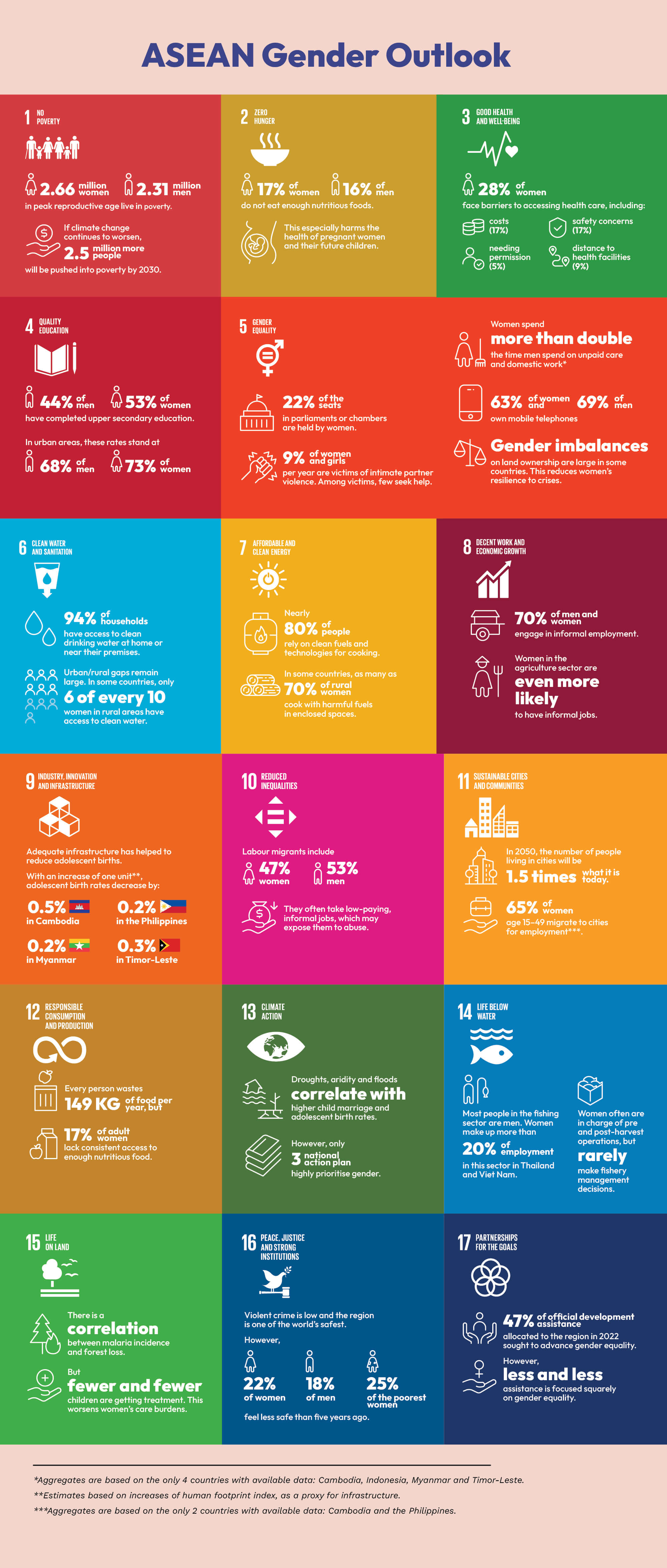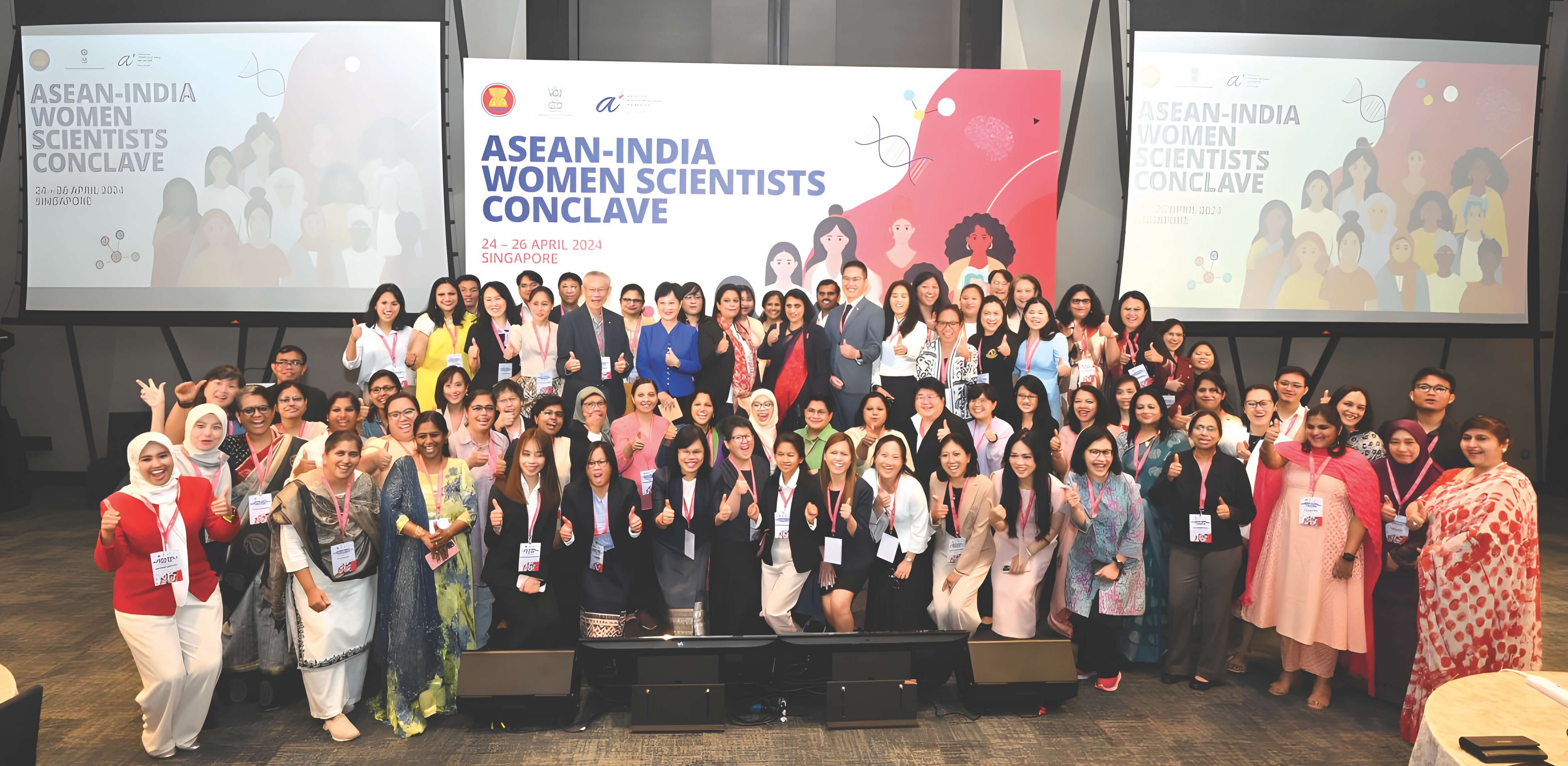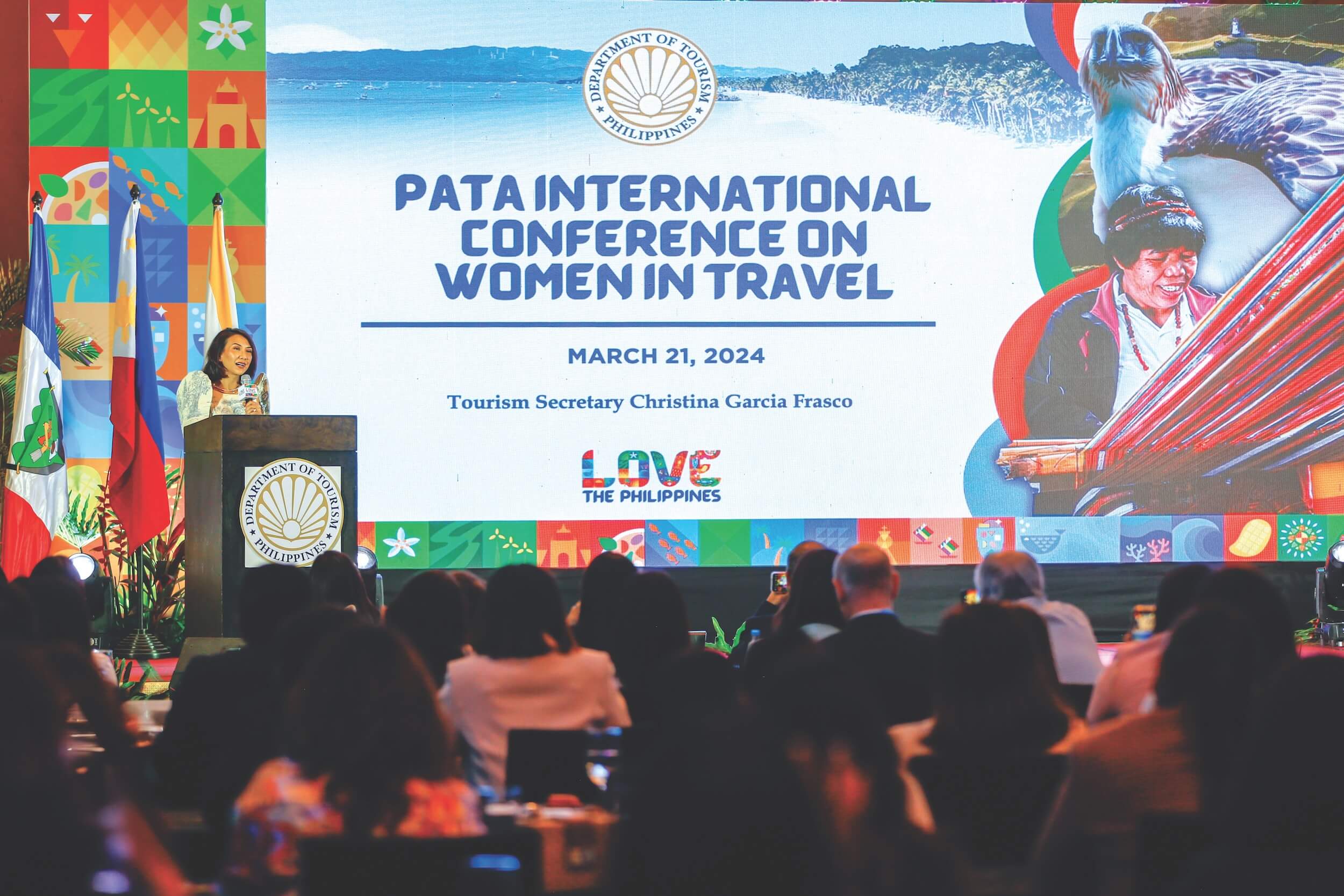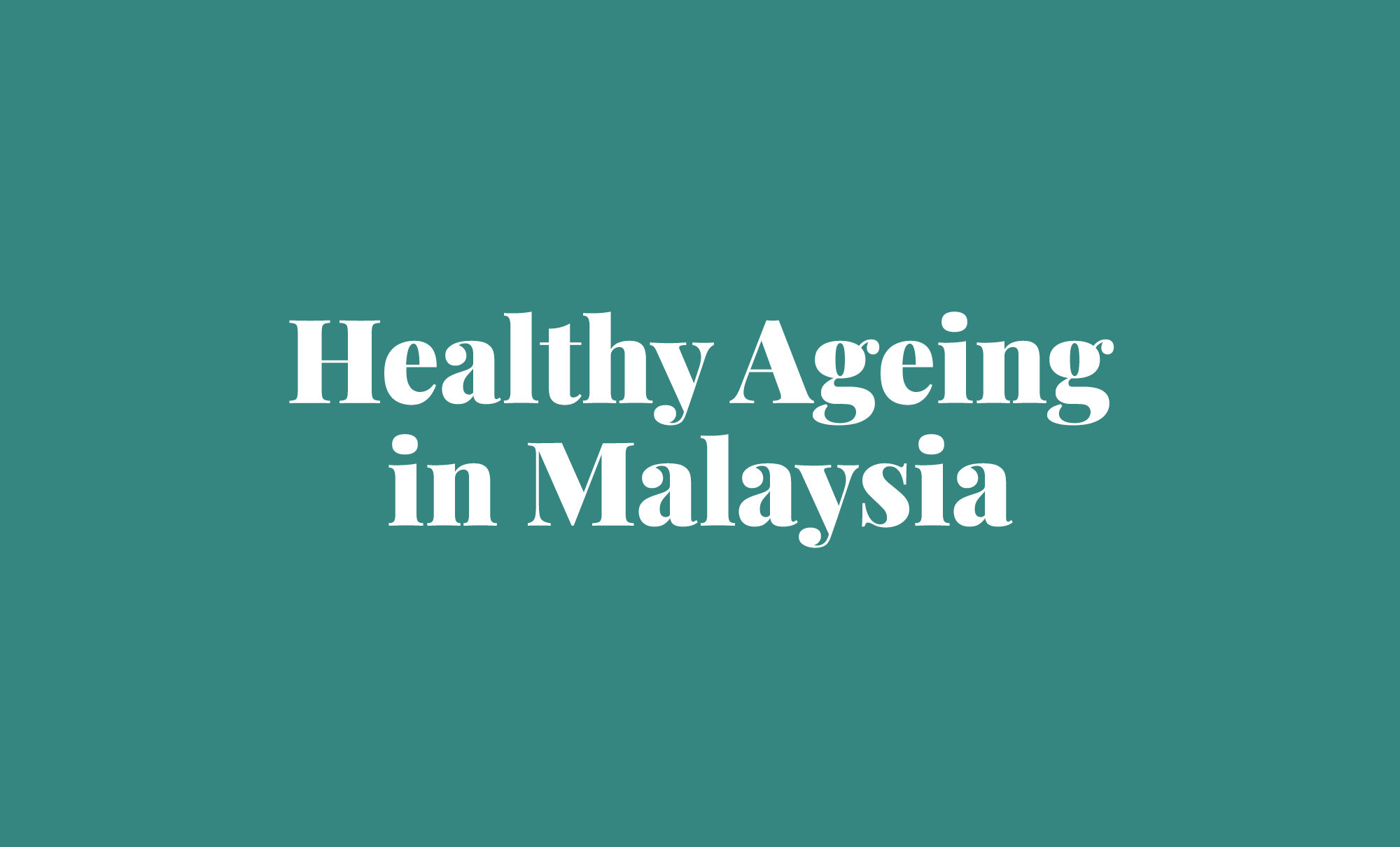



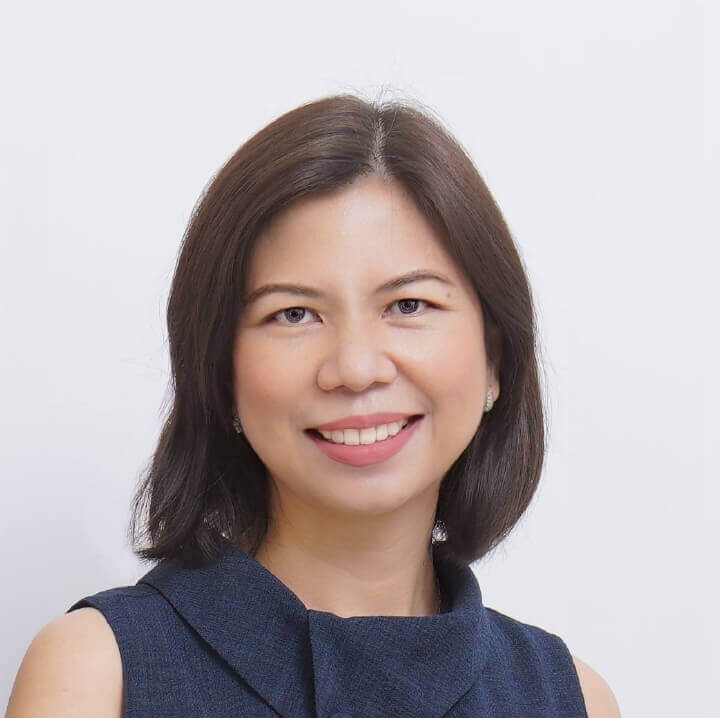
A new report on gender equality in Southeast Asia shows improvements in women’s education, access to water and sanitation, and political representation—but also warns of their continuing poverty and vulnerability to climate change.
The ASEAN Gender Outlook 2024, co-published by ASEAN and UN Women, was unveiled at the United Nations General Assembly in September 2024 and rolled out at the ASEAN Secretariat in Jakarta on 28 May 2025. It is the second gender report aimed at tracking regional progress towards gender equality based on the UN’s Sustainable Development Goals framework.
Secretary-General of ASEAN, Dr. Kao Kim Hourn, stressed the importance of the ASEAN Gender Outlook 2024 to the work of ASEAN sectoral bodies, including the ASEAN Committee on Women and the ASEAN Commission on the Promotion and Protection of the Rights of Women and Children, as well as the ASEAN community statistical system.
“ASEAN remains deeply committed to advancing gender equality and empowering women across our diverse region. A cornerstone of this commitment is our emphasis on the systematic collection, rigorous analysis, and strategic utilisation of gender data and statistics to inform evidence-based policies and programmes at both regional and national levels,” said SG Dr. Kao.
Ulziisuren Jamsran, UN Women Indonesia Country Representative and Liaison to ASEAN, commended the release of the flagship gender report. “The Outlook provides a very good perspective in terms of where things stand, where to focus, and where the gaps are,” she said.
Jamsran urged ASEAN to invest in gender-disaggregated statistics, use gender data to guide and monitor ASEAN’s strategic priorities and vision for the future, and continue to include women’s voices and recognise their agency in policy dialogues and consultations.
Phasporn Sangasuubana, Executive Director of the ASEAN Centre for Sustainable Development Studies and Dialogue (ACSDSD), also expressed her support for the publication and its broader rollout.
She acknowledged the progress in gender equality in the region but emphasised the need for greater women’s participation in decision-making. “It is still imperative to promote women’s equal access to decision-making in areas beyond social affairs, such as high-growth and future-setting economic sectors like artificial intelligence, where women account for less than 15 per cent of the global workforce, and clean energy, where women make up only 20 per cent of the overall workforce,” she said.
The event culminated in a panel discussion where participants highlighted the role of gender-disaggregated data in shaping inclusive policies and programmes, the ongoing technical and financial challenges in data collection, and new and emerging technologies that can bridge data gaps and help with targeted interventions. The panelists included Sarah Tiffin, United Kingdom Ambassador to ASEAN; Kosal Sok, Deputy Director General, Cambodia National Institute for Statistics; Ahmad Zafarullah Abdul Jalil, Director, ASEAN Integration Monitoring Directorate; Sayamol Charoenratana, Deputy Director, Chulalongkorn University Social Research Institute; and Sara Duerto Valero, UN Women Regional Advisor on Gender Statistics.
